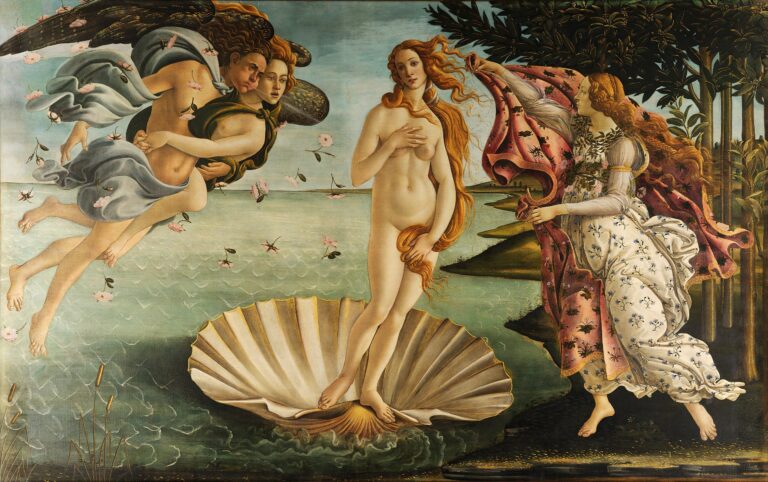
Introduction
Aesthetics is a philosophical discipline that seeks to understand and appreciate beauty, art, and taste. It is a branch of philosophy that explores the nature of art and how it is experienced by individuals. Aesthetics is a worthy philosophical discipline because it provides insight into how we perceive and value the world around us. It also helps us understand the role that art and beauty play in human life.
Aesthetics Defined
The word “aesthetics” comes from the Greek word “aisthēsis,” which means perception. In philosophy, aesthetics is the study of perception and how it relates to art and beauty. Aesthetics is concerned with how humans experience the world through their senses, and how they interpret that experience. It is a discipline that examines the nature of art, beauty, and taste, and how these concepts are understood by individuals and cultures.
Aesthetics is often divided into two main branches: analytic aesthetics and continental aesthetics. Analytic aesthetics is concerned with the analysis of art and beauty using logical and linguistic methods. Continental aesthetics, on the other hand, is more concerned with the historical, cultural, and existential aspects of art and beauty.
The Nature of Art
One of the key questions in aesthetics is: what is art? There are many different definitions of art, but most definitions involve the idea of creating something that is aesthetically pleasing or that has some kind of expressive or communicative value. Some people believe that art is a universal human activity that has existed throughout history, while others believe that art is a product of specific cultural and historical contexts.
There are many different forms of art, including visual arts, literature, music, theater, dance, and film. Each of these forms has its own unique characteristics and ways of engaging with the viewer or listener. For example, visual art often involves the use of color, form, and texture to create a particular aesthetic experience, while music uses sound and rhythm to evoke emotional responses.
The Experience of Beauty
Beauty is another key concept in aesthetics. Beauty is often associated with aesthetic pleasure, and it is something that people value and seek out in their lives. However, the experience of beauty is subjective, and what one person finds beautiful, another person may not.
Aesthetics explores the ways in which people experience beauty and what makes something beautiful. It considers questions such as whether beauty is an inherent quality of an object or whether it is something that is created in the mind of the beholder. It also considers the relationship between beauty and morality, and whether something can be beautiful and yet morally questionable.
Taste and Judgment
Another important concept in aesthetics is taste. Taste refers to the individual preferences that people have for certain types of art, music, literature, or other cultural products. Taste is subjective, and what one person finds appealing, another person may not.
Aesthetics explores the ways in which taste develops and how it is shaped by cultural and social factors. It also considers questions such as whether taste is a matter of individual preference or whether there are objective criteria for judging the value of art.
Aesthetics also examines the ways in which people make judgments about art and beauty. It considers questions such as whether there are objective criteria for evaluating the quality of a work of art or whether judgments are purely subjective. It also explores the role that context plays in our judgments of art and beauty, and how our judgments may be influenced by factors such as social status, cultural background, and personal experience.
The Value of Aesthetics
Aesthetics is a worthy philosophical discipline for several reasons. First, it provides insight into the nature of human experience and how we perceive and value the world around us. Aesthetics helps us to understand the role that art and beauty play in human life, and how they can enrich our lives and contribute to our sense of meaning and purpose.
Second, aesthetics helps us to develop our critical thinking skills and our ability to make judgments about art and beauty. By exploring the different ways in which people make judgments about art, we can become more aware of our own biases and assumptions, and develop a more nuanced understanding of the value of different artistic experiences.
Third, aesthetics helps us to appreciate and enjoy art and beauty more fully. By understanding the ways in which art and beauty are created and experienced, we can become more attuned to the subtleties and complexities of different works of art. We can also become more aware of the ways in which art and beauty are interconnected with other aspects of human experience, such as emotion, morality, and culture.
Conclusion
Aesthetics is a rich and diverse philosophical discipline that explores the nature of art, beauty, and taste. It helps us to understand the ways in which we perceive and value the world around us, and how we can develop our critical thinking skills and appreciation for art and beauty. Aesthetics is a worthy philosophical discipline because it helps us to deepen our understanding of human experience and enrich our lives through the appreciation of art and beauty.

